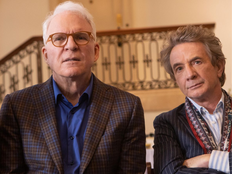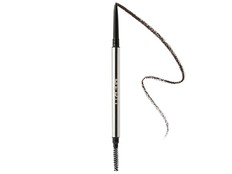Article content
PARIS — Winning would have been the dream, of course, but this Olympic 800-metre final was such an epic race that Marco Arop was honoured just to run it.
At the ridiculously close finish, the 25-year-old from Edmonton was paid off in silver and denied gold by the cruellest of margins; an eyelash on the cherubic face of 20-year-old Kenyan Emmanuel Wanyonyi. Just one, one-hundredth of a second separated them.
Advertisement 2
Article content
“I wanted that gold medal so bad, but like I said, I couldn’t have asked for a better race,” Arop said.
In typical form he ran from the back until the bell, moved through the pack down the backstretch and started the chase in earnest near the final bend. Wanyonyi fended him off with a lean, but if this was an 805-metre final, who knows.
Arop crossed in 1:41.20, crushing his previous mark of 1:42.85 and setting a new North American record. Wanyonyi was golden in 1:41.19.
“In that moment, you just try to focus on your cues, you know, you try to stay technical, try not to fall apart, and I did everything I could,” Arop said of the chase. “You know, it’s not the first time we’ve had a finish like that, Wanyonyi and I, and every single time it seems like he just has that edge right at the finish.”
Well, that’s not the case of course, since Arop is the reigning world champion and Wanyonyi the motivated silver medalist from that race in Budapest last year. It wasn’t nearly as close, either. Arop powered away to gold in a much slower, 1:45 finish, and Wanyonyi was left sucking wind. He hasn’t forgotten.
Advertisement 3
Article content
“Arop beat me last year because of experience,” said Wanyonyi, an Olympic rookie who is still getting his feet wet at the international level. “You come from the back, then you beat me the last 200 meters. So, this time I tell Arop, nobody can beat me times two. So, you need to work hard. If you feel to beat me times two, you really need to work hard.”
They are craftsmen, among the best in their business. They are gentle souls too, not bitter rivals. Both respect the sport, their race and one another’s place in it. They have been this way before and they will meet again.
“He’s an incredible athlete and, you know, it’s not going to be the last time we have a race like that,” said Arop. “Hopefully next time we race, it’ll be me on top, but I got to give credit where credit is due. The entire field was amazing tonight, and I’m going to look back at the race and watch it over and over again. It was just awesome to be a part of it.”
He was prepared for whatever the field was going to throw at him tactically. He’s adaptable like that now, though he certainly prefers to run at the back for as long as it makes sense. That generally keeps him out of trouble, but in the hunt.
Advertisement 4
Article content
“I wasn’t sure if it was going to be fast or tactical today, and it ended up being both. So, similar tactics to last year’s world final and, you know, I thought I timed it just right, but you couldn’t have asked for a better race. It was so close and just a huge, huge personal best today.”
Wanyonyi ran from the front the whole time on the advice of David Rudisha, the Kenyan legend who won Olympic gold at London 2012 in 1:40.91, a world record that stands today. Rudisha and Wanyonyi talked strategy on Friday and was happy that he had listened to the master.
Djamel Sedjati, the 25-year-old Algerian who came to Paris with the world’s fastest time and thoughts of running down Rudisha’s record, settled for bronze. He didn’t have the necessary kick down the final stretch, perhaps running too long on the outside. In a 1:41 contest, every extra bit of expended energy works against you.
In the past, Arop has tied up and faded badly. But he held his form this time and almost chased down Wanyonyi. He figures the times are getting faster with spike and track technology. And he thought he probably benefited from bicarbonate supplement that many distance runners use but he never tried until just last week because of its debilitating gastrointestinal effects.
Advertisement 5
Article content
“That’s something we kind of experimented with last minute. I think that definitely played a factor, too. I figured if everybody else is using it, and it’s been working wonders. So, we’ll see what kind of performances we could do, you know, later on this season. … It helps buffer lactic acid, which is huge, you know. It’s perfect for races that are between 30 seconds and up to 12 minutes, and I think a lot of endurance athletes use it. You know, I think 800 meters might be the best event for it, and you can clearly see that that it’s helping a lot.”
The 800m is not for the feint of heart. It takes every ounce of everything you’ve got, especially at this level. So every little bit helps. When you need to run under 1:42 to hit the podium, that’s serious business.
“We came through at 50-point and I know these guys have been running 1.41 all year, so I just imagined if I keep myself in it and, you know, finish strong, it’s going to be incredibly fast,” said Arop.
He wasn’t wrong. And when you finish second by a margin so small, there are so many points through 800 metres that might have made the difference. Did he run too long at the back? Did he have to swing too wide at any point?
“I thought being in the back or being outside or in front would have been the best move. I didn’t want to run too much extra distance. I think being on the outside might have hurt a little bit, but, you know, at the end of the day, it’s still, like, the best race I’ve ever ran. I’m happy with the way it turned out. I don’t think I could have executed any better.”
dbarnes@postmedia.com
Article content




